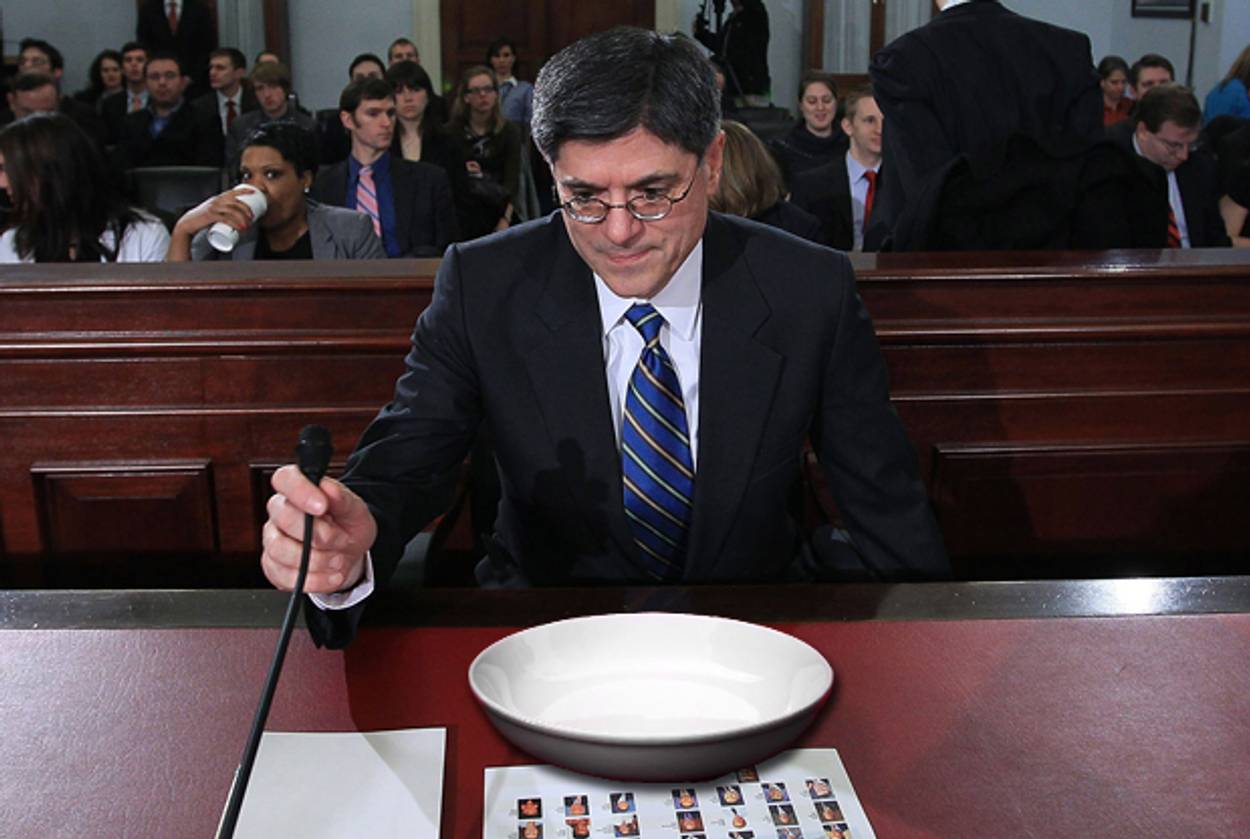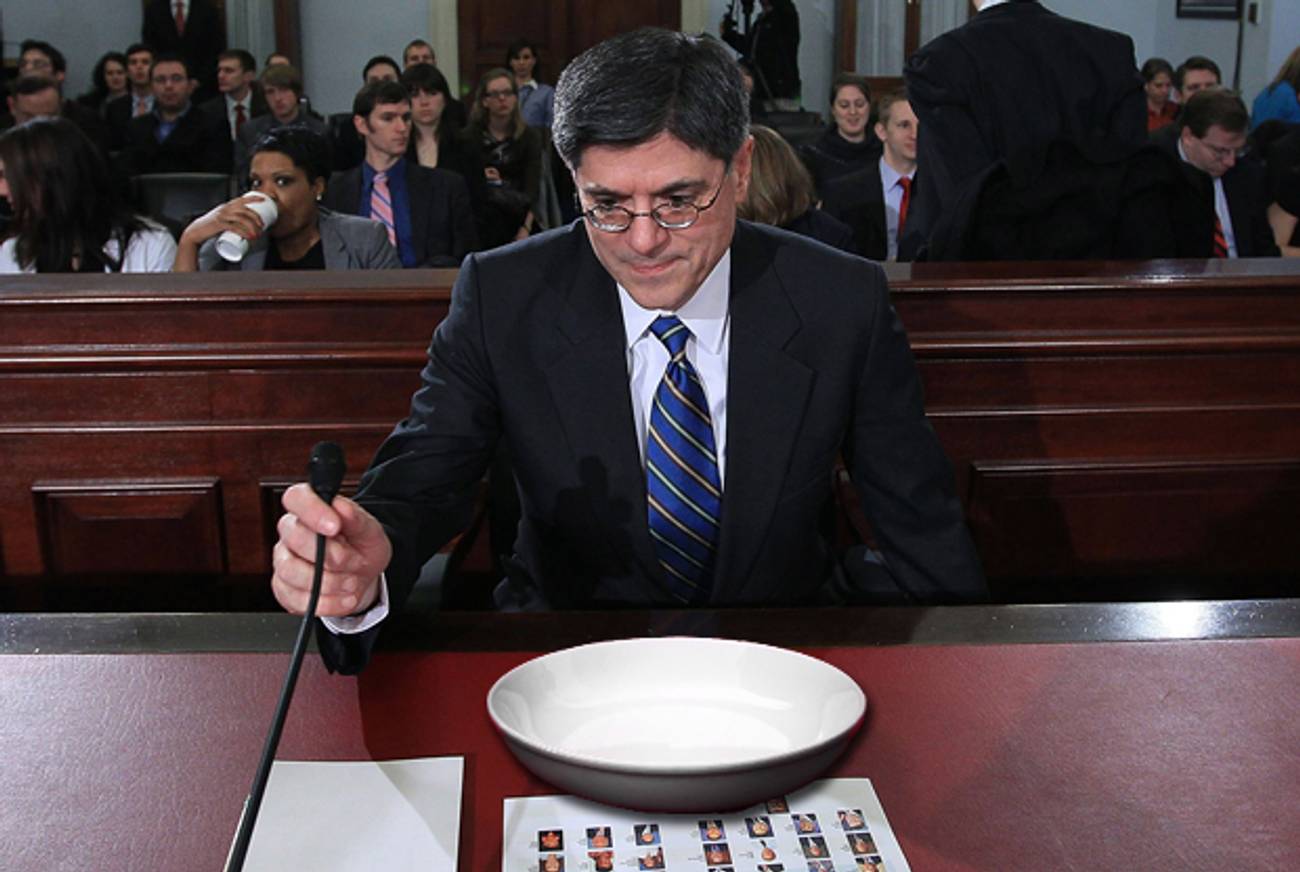D.C.’s Missing Kosher Food
Washington’s restaurant scene may be booming, but D.C. still isn’t a capital place to find good kosher eats




For people who like food, there’s never been a better time to eat in downtown Washington, D.C. In the past few years, the city, long hostage to overpriced American-contemporary steakhouses and the gut-busting Ben’s Chili Bowl, has sprouted a network of small craft restaurants turning out ambitious food that even the New York Times thinks is hip. Within a few miles of the Capitol, there are underground regional Thai places competing with hipster ramen joints, a new Nordic-inflected locavore restaurant, and a gleaming artisan food market in a former industrial warehouse near Union Station.
And, yes, there are delis, too. As in New York, enterprising Washington chefs—both Jewish and not—are working to bring schmaltz into the new century. New York native Gina Chersevani is slinging egg creams, bagels, and knishes from her new soda fountain, Buffalo & Bergen, and a pair of cousins, Nick and David Wiseman, recently opened Dupont Circle’s DGS Delicatessen, which serves house-made pastrami, pickles, and whitefish with Montreal bagels in a neighborhood famously lacking a good schmear. “It’s not just kitsch,” Nick Wiseman, a native Washingtonian, told me. “It’s a big step for the city in terms of being a place where people live and not just a city based on four-year political cycles.”
The menu at DGS is authentically ethnic, although it is kosher-style rather than kosher—just as it is at Katz’s, Langer’s, and most of the other well-known Jewish delis across the country. Sometimes, it’s not even kosher-style: The restaurant’s chef, Barry Koslow, followed the pioneering Brooklyn nouveau deli Mile End and is serving poutine, the Quebecois cheese-and-fries dish, topped with smoked meat. “Kosher wasn’t part of our experience with food growing up,” Wiseman told me, by way of explanation. Meanwhile, at Buffalo & Bergen, there are doughy little salt bagels made with “New York water,” but the knish selection includes decidedly nontraditional stuffing options like bacon-cheddar, barbecue pork, and cheeseburger.
“When people think kosher, they don’t necessarily think hip,” said Spike Mendelsohn, the Top Chef veteran who runs Good Stuff, a flourishing burger chainlet and helped start a temporary kosher food truck with the Sixth & I Jewish event space in 2011. “But with places like DGS Delicatessen and Buffalo & Bergen, you’re seeing how the nostalgia of Jewish food is being adapted to fit the D.C. food scene.”
But one group of Washingtonians is definitely not benefiting from the city’s food renaissance: those who keep strictly kosher. That includes college students and junior Hill staff all the way up the power ladder to Jack Lew, until recently President Obama’s chief of staff and the presumptive next treasury secretary—who, according to the Times, makes do at lunch with cheese sandwiches brought from home. “Not much to write about kosher D.C., is there?” wrote William Daroff, head of the Jewish Federations of North America Washington office, who frequently reigns as the Foursquare “mayor” of the infamously mediocre deli Eli’s, one of only two kosher sit-down restaurants in downtown Washington.
D.C. veterans say the situation has improved slightly since the early 1990s, when the only kosher option downtown was the café at the George Washington University Hillel. These days, there’s Eli’s and Distrikt Bistro, a Mediterranean restaurant tucked into the lobby of the D.C. Jewish Community Center, and it’s possible for kosher-observant eaters to order delivery online from both, or from places further afield, including Soupergirl, a shop in the city’s northwest suburbs that sells vegan, kosher soup. And last year, the cafeteria in one of the Senate office buildings began offering prepackaged kosher sandwiches and salads delivered from a catering company on a trial basis, after an observant intern went on a lobbying blitz to save himself and his colleagues from subsisting on vending-machine snacks. But the movement seems mostly to have stalled. “It’s a stable situation, but it’s plateaued,” said Nathan Diament, director of the Orthodox Union’s Institute for Public Affairs.
No one seems entirely sure why, especially at a time when there’s an enormous amount of capital, both literal and creative, pouring into the capital’s restaurant scene. “It’s a very transient city, historically,” said Beth Kanter, a Washington food writer. “But there are Jewish communities here that weren’t here 20 years ago.” She noted that people whose kosher observance is less than stringent now have more options for eating out, thanks to the increasing number of vegan options in Washington. “Someone needs to come out with a new vision of what kosher restaurants are, and not the old vision of what a kosher eatery is,” Kanter said. “That a place serves some kind of food that’s kosher isn’t enough.”
Yet people have tried that, and failed. The first attempt was L’Etoile, an upscale French bistro that opened in 1999 and then closed in 2002 after losing its lease. (Its owner, David Dahan, went on to start a catering company that for a time regularly serviced the White House for formal events requiring kosher food.) The lobbyist Jack Abramoff, himself an Orthodox Jew, opened a fancy place, Signatures, and a deli, Stacks, which were subsidized by his other businesses largely to cement his own power base; he told me a couple of years ago that they lost millions and did not survive Abramoff’s incarceration on bribery charges. An outpost of the vegetarian falafel chain Maoz closed last year. “There are always reasons,” said Tevi Troy, a former staffer in the George W. Bush Administration, who routinely subsisted on fruit salad and Ritz crackers from the White House mess when he worked in the West Wing a decade ago. “But people look at the flawed models and conclude it’s not possible to succeed here.”
Kosher establishments in Washington have to contend with the same extra costs that places in other cities do: an extra salary for the supervisor, or mashgiach; higher food costs; and, in many cases, closing down on Friday nights. (Some kosher supervisory authorities allow restaurants under non-Jewish ownership to open on Shabbat.) But Washington’s kosher supervisory authority, called the Vaad, is known for being particularly strict, a position that helps ensure visitors can eat in Washington’s kosher establishments without concern about the degree of kashrut being enforced. But Barry Freundel, the rabbi of Georgetown’s Orthodox Kesher Israel synagogue and vice president of the Vaad, said his supervisors operate in line with accepted Orthodox Union standards. “I don’t think we’re stricter than anyone else,” Freundel told me. “We just don’t have people who want to open kosher restaurants. There are a number of people who explore it and decide not to.”
The result is a reinforcement of the status quo. “What happens is the local population suffers,” said Sara Polon, who started Soupergirl, the carryout kosher vegan soup shop, in 2008. Polon grew up Conservative and decided early on to operate under kosher supervision. “I keep kosher, and I couldn’t eat my own soup in my home,” she said of her early days, when she rented kitchen space from a Spanish restaurant. Her business is flourishing, she said, precisely because she has more than just a kosher customer base. “As long as you don’t rely only on kosher eaters,” she said, “these places can succeed.”
***
Like this article? Sign up for our Daily Digest to get Tablet Magazine’s new content in your inbox each morning.
Allison Hoffman is a senior editor at Tablet Magazine. Her Twitter feed is @allisont_dc.
Allison Hoffman is a senior editor at Tablet Magazine. Her Twitter feed is @allisont_dc.